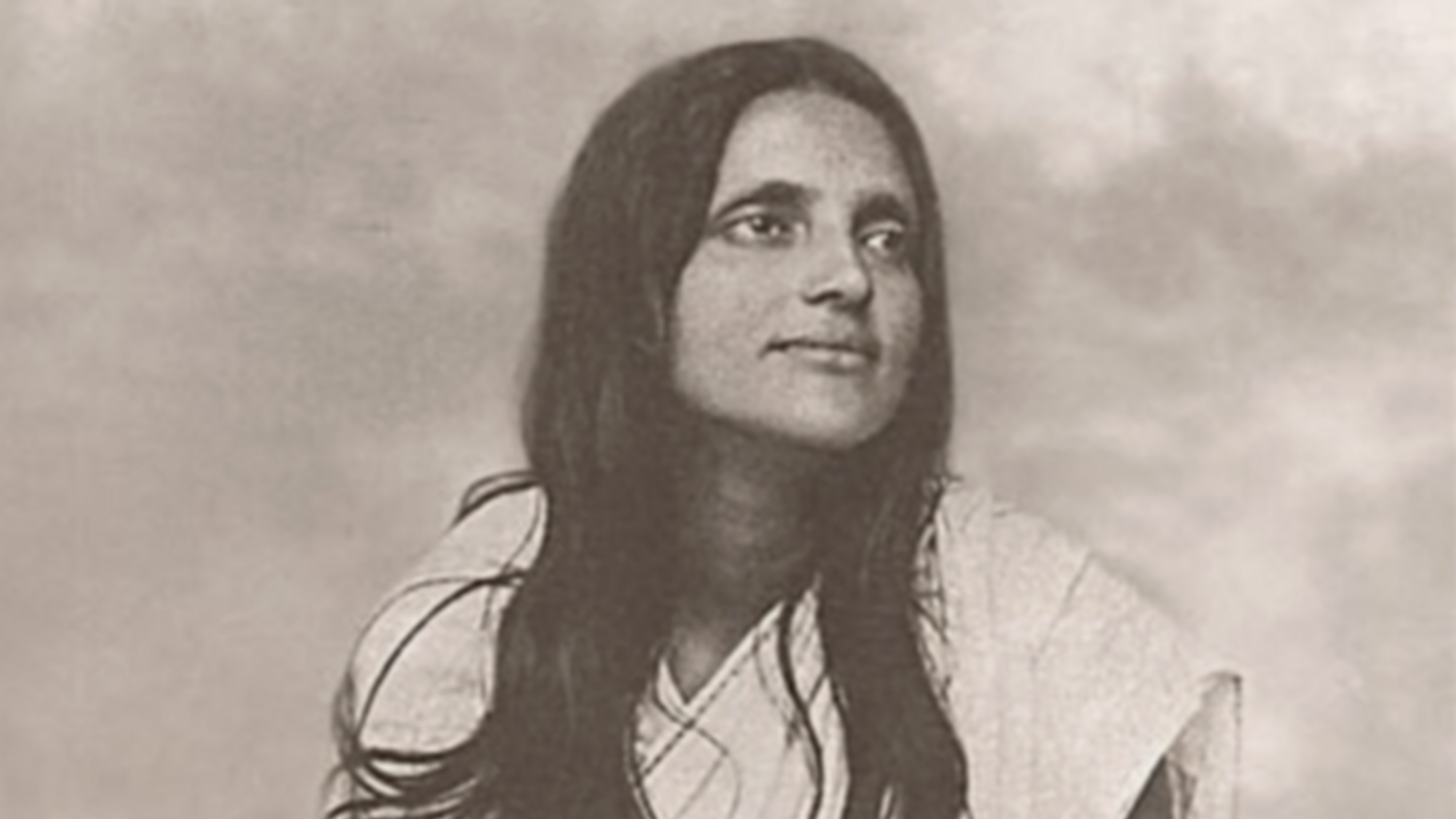Blog

01 Jan 0001
by Rupert Spira
Photograph of Ānandamayī Mā.
In spiritual traditions, there are two main pathways: the path of investigation, or self-enquiry, and the path of devotion, or surrender. The path of investigation involves a discriminating and penetrating clarity that could be characterised as a masculine approach, whereas the path of devotion entails a soft and receptive allowing that could be characterised as a feminine approach. The feminine approach is like a rare jewel, hidden in plain sight. Open your heart, and see her everywhere; close your heart, and she appears to be missing.
In using the words, ‘masculine’ and ‘feminine’, I am not speaking about men and women, nor am I suggesting that one’s gender places one on a particular path. The masculine and feminine principles are alive within all of us. As such, both attitudes are relevant to men and women alike, although most people will have a natural affinity for one of the two. Ultimately, the path of investigation and the path of devotion are the same path, formulated for the mind and the heart, respectively.
The path of investigation involves an exploration into the nature of our self, that to which we refer as ‘I’. This involves going inward or turning away from the content of experience – thoughts, feelings, sensations, perceptions, activities and relationships. Through a thorough self-investigation, we recognise our true nature as infinite, eternal awareness. We understand, ‘I am nothing that I know or experience. I am that which knows, or is aware of, all experience.’ Our self-investigation deepens into self-abidance, resting in and as being itself.
The feminine approach also involves resting in being, but recognises that only infinite being, God’s being, is, thus there is no need to turn away from anything. Rather, the feminine is a gravity-well of love and compassion, receiving everything into herself as herself. Here, we know that everything is the face of God, ‘every day in a different configuration’.1
As Mother Teresa said, we see ‘the face of God in everything, everyone, all the time, and its hand in every happening’.2 As Ānandamayī Mā said, ‘When, by the flood of your tears, the inner and the outer have fused into one, you will find Her whom you sought with such anguish, nearer than the nearest, the very breath of life, the very core of every heart’.3
This approach is not a departure from the masculine but is, in essence, one and the same. It is interesting to note that Ramana Maharshi, the grandfather of self-enquiry, referred to devotion as the mother of self-enquiry. Reality, if approached through the mind, is referred to as ‘truth’; if approached through the heart, it is referred to as ‘God’. The love of truth and the love of God are the same love. This love gives rise to a multiplicity of paths, which all lead to the same mountaintop.
The feminine approach goes beyond the apparent multiplicity of objects and selves to hopelessly and ceaselessly love only that which is real: the single, infinite and indivisible being whose nature is consciousness, spirit or God. In this love, there is no room for self and other, subject and object. Since the feminine approach goes beyond the mind, it is less often formulated into words, choosing instead to commune and communicate non-verbally.
It can be misleading to speak of surrender. The mind naturally wonders, ‘If only God is, then what gets surrendered and by whom?’ We could say that the apparently separate self, or ego, is surrendered. However, even this is not quite right, as the idea that the separate self needs to be surrendered is a compassionate concession to the separate self we feel ourself to be. Ultimately, only God is. To know only that, to love only that and to be only that is the ultimate surrender.
In this understanding, even the distinction between masculine and feminine collapses into unity. All apparent dualities dissolve in the heart of God.
1 From Awhad al-din Balyani, Know Yourself, translated by Cecilia Twinch (Beshara Publications, 2011).
2 A Luminous Life: A Journey into Classic Christian Spirituality, by Brock Bingaman (Cascade Books, 2020).
3 Mother of Bliss: Ānandamayī Mā (1896-1982), by Hallstrom, Lisa. L. (Oxford University Press, 1999).
Sign up for a free account.
Your 14 day free trial has ended.
Please subscribe to continue enjoying everything the site has to offer.
For your safety, please confirm your dietary requirements & emergency contact details below for your upcoming event